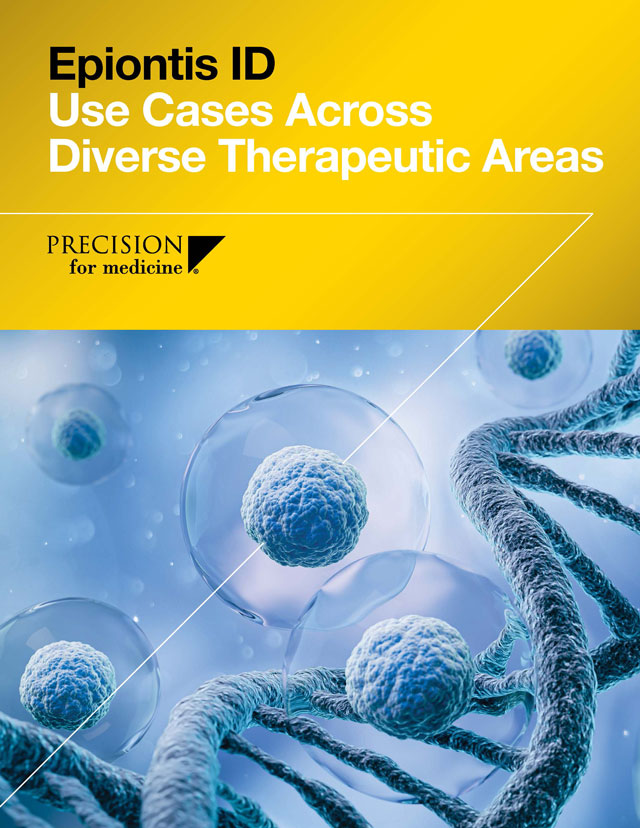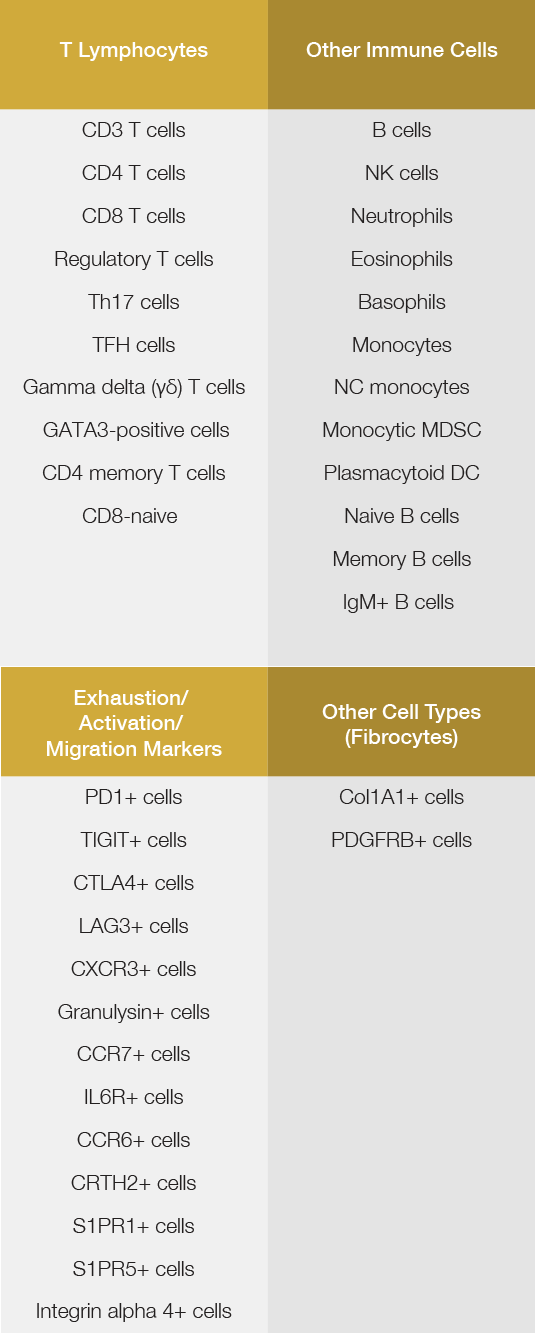Immune Monitoring
by Epiontis ID®

Precision’s Epiontis ID® technology is a robust, adaptable, and cost-effective solution for immune cell profiling, using cell type–specific epigenetic markers. Its automated platform ensures consistent, unbiased results. With minimal sample processing, it simplifies global trial logistics and provides reliable, reproducible results that enable comparison across studies and locations. This makes it an ideal choice for immune monitoring in both early stage and advanced clinical trials.
Epiontis ID® Explained
Combining the Power of Epigenetics and the Consistency of qPCR
Epiontis ID® harnesses the unique methylation patterns specific to distinct cell types and uses a customized process and qPCR primers to amplify only those DNA regions that are demethylated in the cell type of interest. The quantitative nature of qPCR then allows for a precise count of the number of cells of interest in any sample.
Accurate cell type quantification is enabled by measuring specific epigenetic biomarkers using qPCR. The uniformity and objectivity of qPCR results yield highly reproducible data that can be compared within and across various studies.



Epiontis ID®:
Use Cases Across Diverse Therapeutic Areas
Learn about Epiontis ID®’s applications in various therapeutic areas, highlighting its role in precise immune monitoring for advanced research.
Customizable Validated Assays Ready to Run
The scientific team behind Epiontis ID® continuously adds new available cell types, often in response to specific client requests or needs. We do more than just create a customized assay; we provide a comprehensive biomarker strategy that incorporates Epiontis ID® and various other technologies to help achieve your clinical development objectives.
Currently, there are over 35 validated assays available for Epiontis ID®, with additional cell types added regularly.
Study sponsors can select and combine any of the available cell types into a panel for analysis.
Download the full list of pre-validated panels.


Established Use With Industry-Leading Partners
Epiontis ID® has been used in phase 1 to phase 4 studies by some of the most prominent biopharmaceutical companies around the world. Explore the work our Epiontis team has conducted with these industry leaders.
To Flow or Not to Flow:
Immune Cell Profiling in Translational Research
Learn about the benefits and limitations of flow cytometry and Epiontis ID®, and how to choose between these two options for immune cell profiling.

